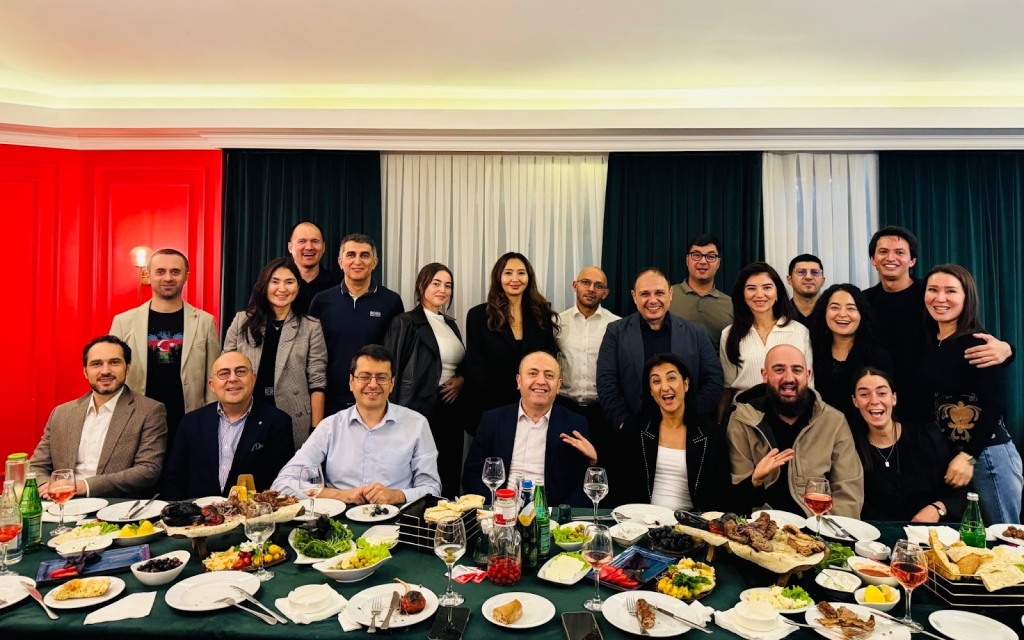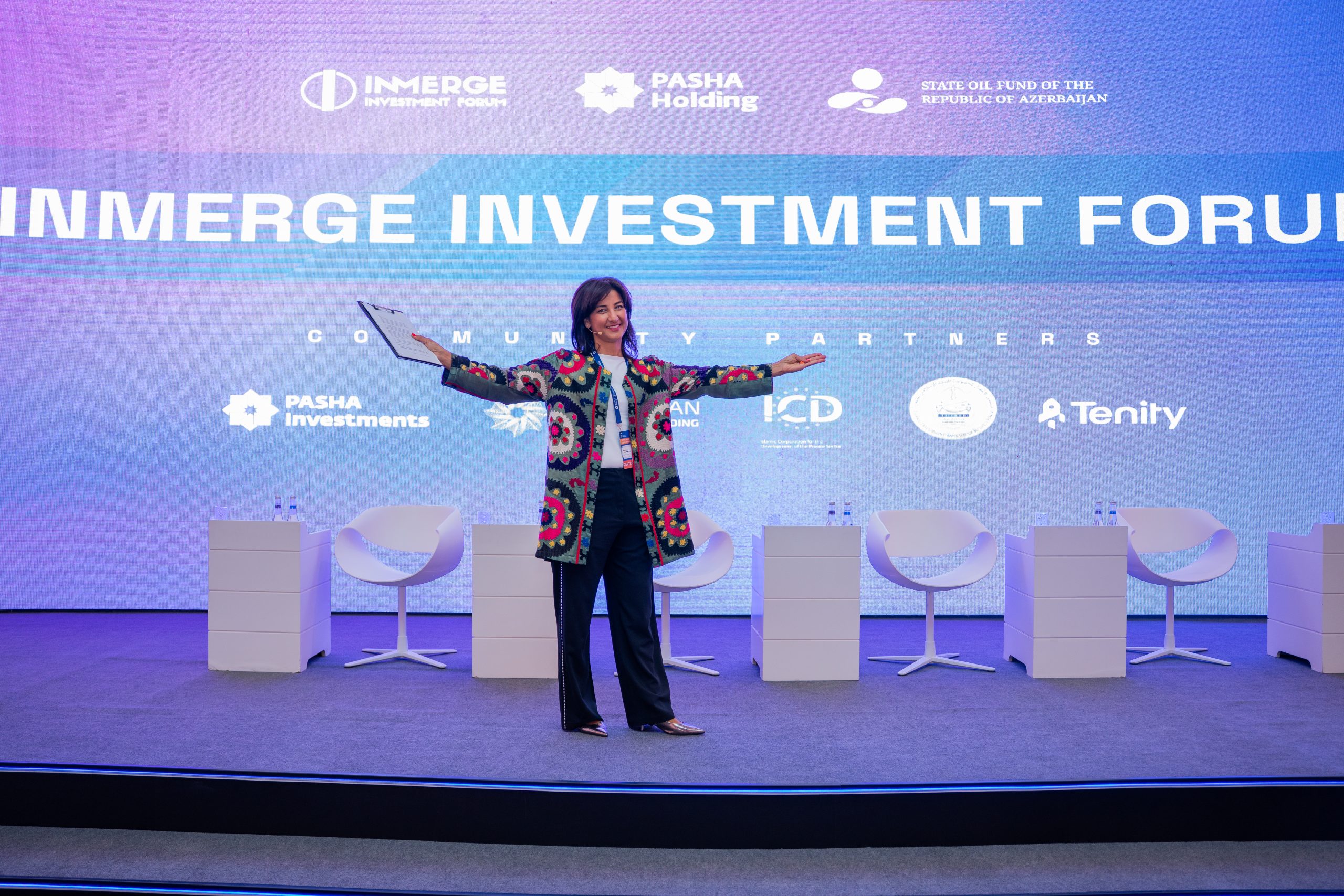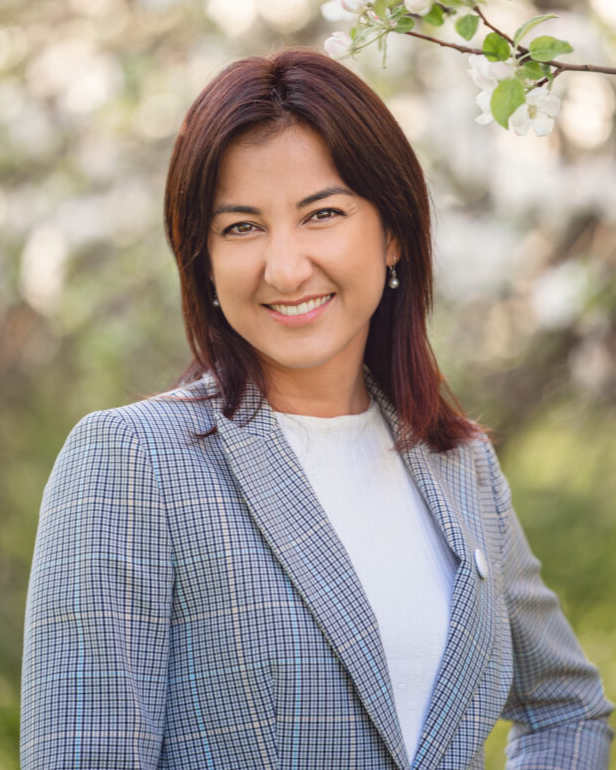Last week, I stood on stage in Baku, Azerbaijan; not merely to moderate an event, but to carry a conversation forward.
A conversation about realizing “our own” potential, responsibility, and the courage to look beyond familiar markets.
As the host of the InMerge Investment Forum (part of the InMerge Innovation Summit), I had the privilege of guiding discussions among leaders representing 90 firms, 18 countries, and managing over 4 trillion dollars in global assets. These were the people shaping how the world’s capital moves, and increasingly, where it chooses to go next. Coming from this region myself, the experience felt deeply personal. Central Eurasia has long been viewed through a narrow lens, often underestimated or overlooked. Yet on that stage, surrounded by investors, founders, and policymakers, I could sense a quiet shift, a growing belief and attitude that this region’s future is desired and needed, and the readiness is there.
I wanted to share this because I was not so much in the presence of investors as we usually read about them, but this time it was a first-hand experience, and I share the learnings with you, which I hope you will find interesting.
How to invest $4 trillion and why Central Eurasia?
When you gather the people responsible for global capital allocation, patterns start to emerge.
The discussions were less about short-term profits and more about trust. Trust in institutions, in governance, in the predictability of systems.
Felix Wenger, Senior Partner at McKinsey, spoke about moving beyond Western bias and recognizing the immense potential in markets that have yet to be fully explored. He reminded the audience that the next wave of opportunity might not come from established centers, but from those willing to build new ones. According to McKinsey, by mid-2025 there was €147 trillion of global capital ready to be invested; and it was eye-opening to see how that capital is being positioned.
Local leaders such as Ruslan Alikhanov, CEO of Azerbaijan Investment Holding, shared how Azerbaijan is developing transparency and accountability through international cooperation, including with the OECD framework. Their efforts signal a region ready to align with global standards and invite responsible investment.
Vitaliy Yakovlev of KPMG mentioned that the strength of Central Eurasia lies in its young population, fast digital adoption, a shift to cashless payments, and strong intergovernmental support.
Beyond Spotlights and Panels
At forums like these, the best insights rarely happen under bright lights. They emerge between sessions: over coffee breaks, on bus rides, at dinners where conversations turn unguarded.
During these in-between moments, three reflections from Central Eurasia stood out for me.
1. When “Pitching” Loses Its Purpose
I’ve heard countless startup pitches from Turkey, Finland, and beyond but for the first time, I heard confident pitches from among others Azerbaijan, Uzbekistan, and Georgia. Alongside that pride, I also learned something sobering: the rise of “ghost pitchers.”
In some competitions, founders lacking confidence hire professionals to pitch on their behalf — who sometimes walk away with half, or even the full prize purse, never to return. This practice is unethical and corrupt; it undermines trust and distorts innovation. True entrepreneurship thrives on authenticity and courage, not performance by proxy. Imagine the same person being involved with 3-4 startups at the same time? No system is perfect, but we all share the duty to cultivate fair, ethical spaces to grow ideas and in practical terms not just black list startups but call for more pitching skills and highlighting ethics in capacity building of the start-up community.
2. The Quiet Courage of Women Entrepreneurs
Another moment that stayed with me came from conversations with Central Asian women entrepreneurs — some navigating gender-based violence while raising families and building businesses in their forties.
They spoke about redefining expectations set by family and society, often pushing back against rules imposed by husbands or in-laws, or parents. Their resilience carries both hope and urgency. The systemic barriers they face begin long before the topic of “female access to capital” enters the room. Business travel or attending a retreat should not require top-down permission. Their stories reminded me that leadership begins when women are free to make choices and feel free to unfold their potential, not fight for it.
3. The Meaning of a Hug
One of the most surprising lessons came from something simple — a hug.
At the forum, I saw Azerbaijani men and women greet each other warmly with a hug. Curious, I asked if they were related. “No,” they laughed, “we studied together.” Where I come from, many married women avoid friendships with men outside their family. They shared how introducing friends to family early removes suspicion and strengthens mutual respect. I thought about how traditional gender roles and biases can restrict freedoms (including hugs) and perpetuate unequal treatment— core aspects of everyday sexism. Seeing these open gestures of connection was quietly revolutionary. Yes, we can! A small cultural nuance, yet it revealed something profound: trust, equality, and creating a safe space for all, including a summit, can start with gestures as simple as a hug.
5 Reflections from the Forum
1. Emerging Markets Require a New Mindset
Growth today depends on curiosity. Investors who explore beyond traditional hubs often discover not only higher returns but also more meaningful partnerships.
2. Agility Defines Strength
Success in developing regions belongs to those who adapt quickly to shifting rules, markets, and realities. Flexibility has become a competitive advantage.
3. Human Capital Remains the Foundation
No investment thrives without people who understand local dynamics. Sustainable growth requires investing in local talent and leadership, not just infrastructure. Ask yourself: is it easy to move where you live? Is it comfortable for the whole family? After all, when we talk about global sovereign wealth funds, pension funds, family offices, and venture investors – they are all people and not surprisingly for any country be it Finland or Azerbaijan – we all want the same investors and best of capital and talents to move there as well. So we have to take this mobility and retention seriously.
4. Representation Shapes Decisions
The finance world still leans heavily male. On that stage, I was reminded of how essential it is to see more women at the tables where capital decisions are made. Tugce Ergul, founder of Hypernova Capital, stood out with her clarity and courage; a reminder that representation directly influences who gets funded and how. Derya Yavuz from Turkiye Ish Bank was also a powerhouse, connecting across digital banking, supporting entrepreneurs, and making cross-border partnerships even during lunch break. It was spot on!
5. Sustainability Deserves a Seat in Every Conversation
Environmental and human sustainability were lightly touched upon, yet they are inseparable from long-term economic success. Investors who integrate these dimensions early will build not only wealth but resilience.
What Investors Talk About When They Talk About Risk
Behind closed doors, conversations ranged from sovereign funds to Bitcoin, from gold stability to startup agility.
What struck me most was how different investors’ time horizons are:
- Sovereign funds think in decades.
- Pension funds in years.
- Private equity in quarters.
Yet every conversation circled back to one word: stability.
And that’s where countries like Azerbaijan and its neighbors are rewriting their story, by building legal systems investors can trust. For instance, the Astana International Financial Centre even brought in UK judges to run its arbitration courts, literally importing trust into the system.
That’s how regions seem to rise: not just with capital inflows, but with institutional credibility.
A Moment of Connection Amid Numbers
In the evening, I reunited with my Central Eurasian Leadership Alliance (CELA) peers — from Kazakhstan, Kyrgyzstan, Uzbekistan, Georgia, and Azerbaijan.

Over meals, we shared stories from our leadership journeys and reflected on how life — both personally and professionally — continues to evolve across Central Eurasia, from Azerbaijan to Kazakhstan, Uzbekistan, and Kyrgyzstan.
Because behind every chart, every investment vehicle, every billion-dollar fund, there are people. And trust begins not in contracts, but in meaningful conversations like these.
Azerbaijan’s legendary hospitality reminded me of that truth again and again. The food, the smiles, the openness – these soft skills build the foundation that capital later stands on.
Why This Matters
When you are exposed to startup jargon all you hear is unicorns and quick exits. But small, steady returns — the kind that strengthen regions and empower communities — are just as powerful.
Maybe it’s time to ask ourselves:
What if impact became as important as interest rates? What if capital didn’t just flow to where it’s safest, but where it’s needed most?
I believe that’s the next frontier — the era where investing is not only about financial returns but also about returning something valuable to humanity. I enjoyed the futurist take on this Zack Kass saying that to bridge dehumanisation, loss of jobs or identity or bad acting, we need to reinvest in humanity and our communities and inspire lives that bring joy in physical spaces and let us not obsess with virtual reality.
In a world driven by numbers, I hope the purpose remains the quiet differentiator.
A Personal Note
To Huseyn Mahmudov, Tugra Musayeva, and to every speaker who dared to reimagine how capital can connect continents, thank you.
Hosting the first InMerge Investment Forum allowed me to witness a region on the rise — one that is learning, connecting, and inviting the world to take notice.
And if there’s one thing I took home from Baku, it’s this:
Capital follows confidence, but confidence follows connection.
Let’s keep building those connections. And after all, confidence, once earned, changes everything.


